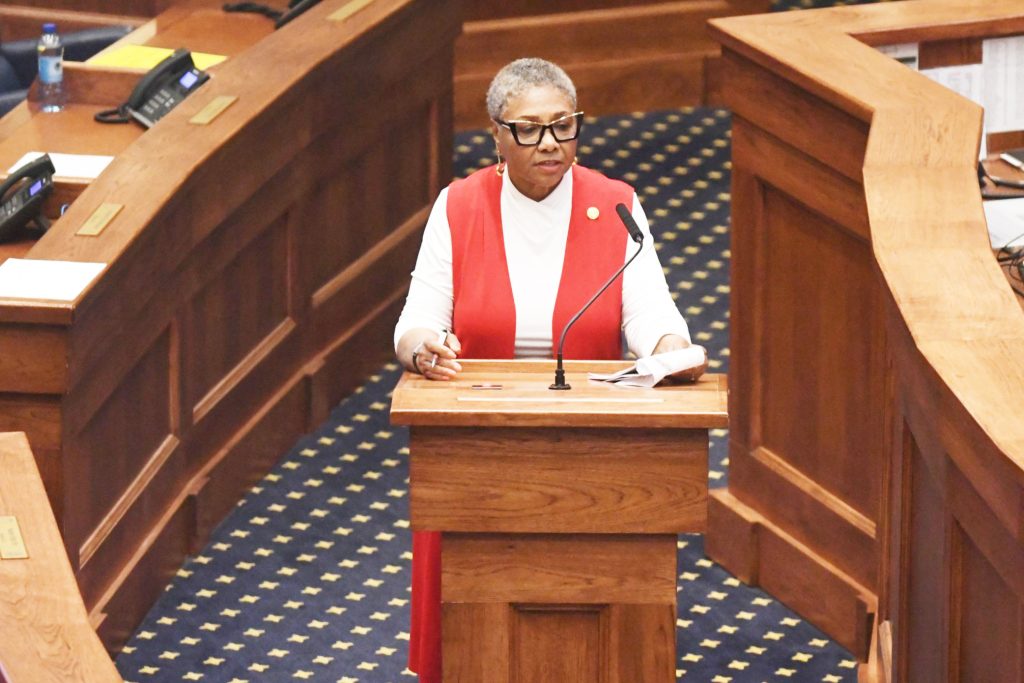By SPEAKIN’ OUT NEWS

Alabama State Senator Linda Coleman-Madison, D-Birmingham, is once again pushing for clearer, more accessible voting rights restoration for Alabamians with felony convictions. Her latest legislation, Senate Bill 24, seeks to eliminate the confusion and bureaucratic hurdles that have long kept thousands of eligible residents from re-entering the democratic process.
Under current Alabama law, individuals convicted of certain felonies lose their right to vote and must petition the Alabama Board of Pardons and Paroles to have that right restored. Eligibility requires completing all sentencing requirements — including probation or parole — paying court fines, and having no pending felony charges. But advocates say the process remains difficult to navigate, and some convictions permanently bar a person from regaining their voting rights.
SB24, filed last week, would require the Board of Pardons and Paroles and the Alabama Secretary of State to post “easily accessible” instructions online detailing how eligible individuals can restore their rights. The websites would also be required to host a form allowing people to electronically request a Certificate of Eligibility to Register to Vote, the first step toward regaining the right to cast a ballot.
Coleman-Madison said the goal is to keep returning citizens informed and empowered. “SB24 is legislation I’ve offered for several years… to ensure the policy changes could be enacted without additional, undue cost,” she told APR in a written statement. Many individuals, she noted, “don’t know all of the requirements they need to meet” or have no clarity on their application status once the process begins.
The bill would also require the Board of Pardons and Paroles to publicly post the names of individuals who have had their rights restored and to notify the Secretary of State, who must then alert county registrars. Registrars would be obligated to add the individual to the poll list and notify them when they become eligible to vote.
Coleman-Madison emphasized that the proposed reforms are about dignity and reintegration. “These are family people who want to be role models… This is a chance to come out and try to get their lives back together,” she said.
Her past efforts have earned support from Alabama Arise and the ACLU of Alabama, which argue that felony disenfranchisement perpetuates punishment long after incarceration ends. The ACLU estimates Alabama’s laws prevent approximately 250,000 people with felony convictions from voting, with many more effectively disenfranchised through confusion and misapplication of the law.
Similar legislation passed the Senate during the 2025 session but stalled in the House. If approved this time, SB24 would take effect October 1, 2026.

